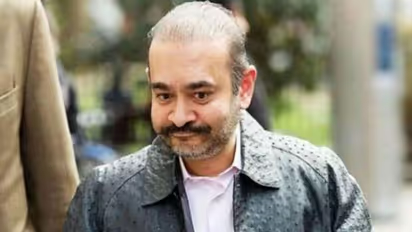Should not pick holes in Indian assurances: UK High Court in Nirav Modi case

Synopsis
Nirav Modi's defence team claimed that his depression would worsen if sent to the "hostile environment" of India, where politicians have "demonised" him by pre-judging his guilt, the press has been "vitriolic" and the public has "burnt his effigies".
The High Court in London on Wednesday said that India is a 'friendly foreign power' and the UK must honour its extradition treaty obligations by not picking holes in the government's assurances that Nirav Modi will be provided with adequate medical care at Arthur Road Jail in Mumbai while on trial for fraud and money laundering.
On the second day of an appeal hearing being pursued by the 51-year-old diamond merchant against being extradited to face the Indian courts in the estimated USD 2 billion Punjab National Bank (PNB) loan scam case, a two-judge panel continued to hear arguments that Nirav poses a high risk of suicide due to his depressive state.
Also read: Over 470 pilot whales die in 'heartbreaking' New Zealand's Chatham Island strandings: Report
His defence team claimed that his depression would worsen if sent to the "hostile environment" of India, where politicians have "demonised" him by pre-judging his guilt, the press has been "vitriolic" and the public has "burnt his effigies".
"The government of India assurances should be read reasonably benignly and one should not pick every possible hole in them," Lord Justice Jeremy Stuart-Smith told defence barrister Edward Fitzgerald.
"It is in your client's interests to demonstrate the assurances aren't good enough, but we should take a benign approach," he said.
Also read: Suspected Korean student says he was 'blackmailed' in fatal stabbing of Indian-origin roommate case
Justice Robert Jay further noted that India is a "friendly foreign power and we have to honour our treaty obligations", with reference to the India-UK Extradition Treaty signed in 1992.
The court was taken through the detailed assurances offered by the Indian authorities, the cumulative effect of which would imply that the psychiatric diagnosis would be "more than adequately managed" in India.
Also read: Coronation of Britain's King Charles III to be held on 6 May next year
"This is an extremely high profile case in India and there will be many eyes on the government of India and on Mr Modi's care," said Helen Malcolm, the Crown Prosecution Service (CPS) barrister, on behalf of the Indian government.
Besides, she pointed to several other safeguards including daily visits by Nirav's lawyers, access by private medical practitioners and a multidisciplinary medical team agreeing a care plan within days of his arrival in India.
The extradition appeal now hinges on the judges' ruling on whether it would be oppressive to extradite Nirav given his high risk of suicide, which is expected to be elevated on being extradited.
(With inputs from PTI)
Check the Breaking News Today and Latest News from across India and around the world. Stay updated with the latest World News and global developments from politics to economy and current affairs. Get in-depth coverage of China News, Europe News, Pakistan News, and South Asia News, along with top headlines from the UK and US. Follow expert analysis, international trends, and breaking updates from around the globe. Download the Asianet News Official App from the Android Play Store and iPhone App Store for accurate and timely news updates anytime, anywhere.